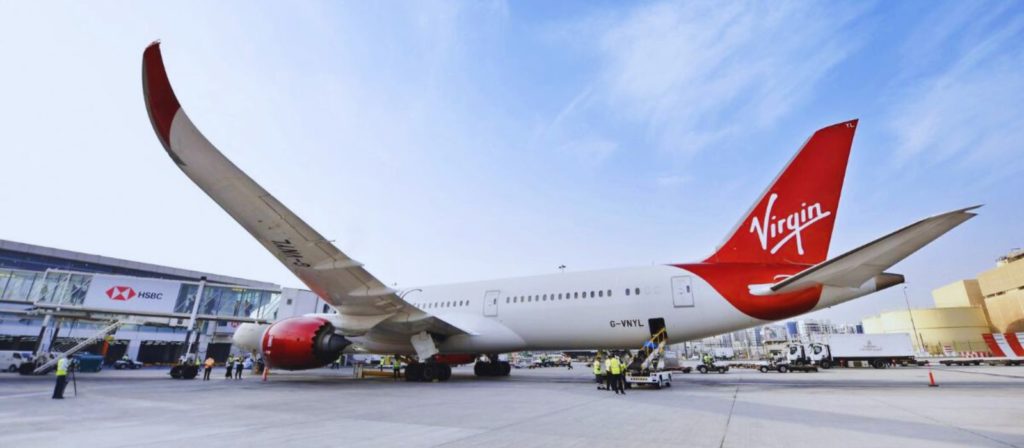Virgin Atlantic’s taxpayer-funded Boeing 787, powered by sustainable aviation fuel (SAF), showcases the UK’s commitment to the 2050 “jet zero” target. The successful test flight, utilising alternative fuel synthesised from recycled oil and captured carbon, claims a 70% reduction in carbon footprint.
However, environmental campaigners express scepticism, highlighting debates over the true sustainability of SAF and the challenges, including supply issues and the need for substantial renewable energy, that the aviation industry faces in its quest for greener flying.
1. Virgin Atlantic’s Transatlantic Flight
A Boeing 787, funded by £1 million of taxpayer money, embarks on a transatlantic journey from London to New York. The flight, carrying scientists, aviation leaders, politicians, and media, is powered largely by sustainable aviation fuel (SAF) derived from used cooking oil.
2. Jet Zero Aspirations
The UK government and aviation industry aim to showcase greener flying possibilities and demonstrate their commitment to the 2050 “jet zero” target, suggesting a shift toward more environmentally friendly aviation practices.
3. Technical Feasibility of SAF
The test flight successfully employs a full tank of alternative fuel synthesised from captured carbon and recycled oil. Producers claim a 70% reduction in carbon footprint compared to conventional jet fuel, according to a “life cycle” analysis.
4. Debate on SAF Sustainability
Environmental campaigners express scepticism about SAF’s merits and voice concerns over the government’s optimistic language. There is disagreement on the sustainability of proposed waste-based fuels, with critics cautioning against overhyping the challenge of decarbonizing aviation.
5. Challenges and Future Outlook
Despite the potential benefits of SAF, challenges remain, including supply issues and the need for substantial renewable energy for production. The aviation industry emphasises the unique challenges it faces compared to other sectors and calls for increased production, subsidies, and mandates for greener fuels. Meanwhile, debates persist on the efficiency and true sustainability of SAF compared to other potential solutions for reducing aviation emissions.























